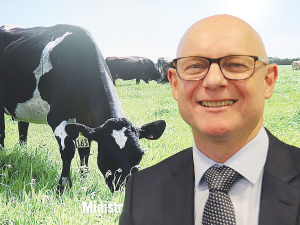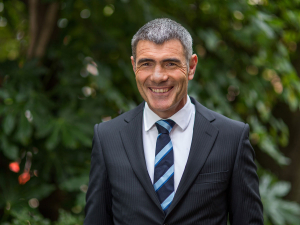While dairy remains the biggest export earner for the NZ primary sector, it is facing some challenges in the coming two years.
The December report, Situation and Outlook for Primary Industries (SOPI), produced by the Ministry for Primary Industries, shows that in the season ended June 30, 2024, earnings will be down 7% to a fraction over $24 billion, and a year on will still be below the record $26 billion in the 2022/23 season. This is due mainly to the drop in earnings from whole milk powder.
The SOPI report says this is due to a combination of factors - mainly the static state of world markets and in particular China, but also due to an expected decline in milk production in NZ.
Other sectors, such as meat, wool and forestry, are also being hit by the international downturn. The report highlights living cost pressures in many overseas markets where consumers are seen as taking a very cautious approach to spending on food and looking for lower price options.
Except for casein and protein products, China is the biggest importer of NZ dairy products. Overall, it takes 35% of these and the next single biggest markets at just 5% are Australia, Indonesia, and the US.
In respect to China, MPI says the general slowdown in their economy and good levels of domestic production and processing are the reasons for the subdued demand. In the September quarter, for example, Chinese whole milk powder imports decreased by 41% in both volume and value compared with the same month a year ago. Other factors such as the Ukraine war and now the escalating Middle East crisis are not helping the situation.
The Director General of MPI, Ray Smith, says all primary sectors have had to navigate a confluence of global events, ranging from conflicts to rising inflation and cost of living. He says farmers are being are being struck a double whammy with farm input costs increasing while at the same time there is declining demand for product.
He says a lot will depend on when China comes back into the market following Covid and other internal economic pressures.
"I was in China recently and met with a lot of people and there is a sense that if you look out 12 to 24 months you will start to see that confidence come back into that market," he says.
Smith says the situation in China has to some degree spilled over into other parts of South East Asia, but adds that overall the whole global economy has flattened out.
So far, on the home front, the season for dairy farmers appears to be going pretty well but time will tell.
However, according to MPI, milk production in the season to end of May 2024 is likely to decline by 1.5%, driven by lower cow numbers and a likely drier summer in the key dairying regions due to El Nino.
The report also makes an interesting observation on this by saying, "there has been a drop in milk production on a liquid milk basis, but an increase in milk solids over the first four months of the 2023/24 season. This could affect product mix soon towards the dairy fat complex".
In a world where turmoil and uncertainty reign, even the bet thought out predictions can change at a moment's notice. Just remember, it was almost a year ago when Cyclone Gabrielle struck.


















